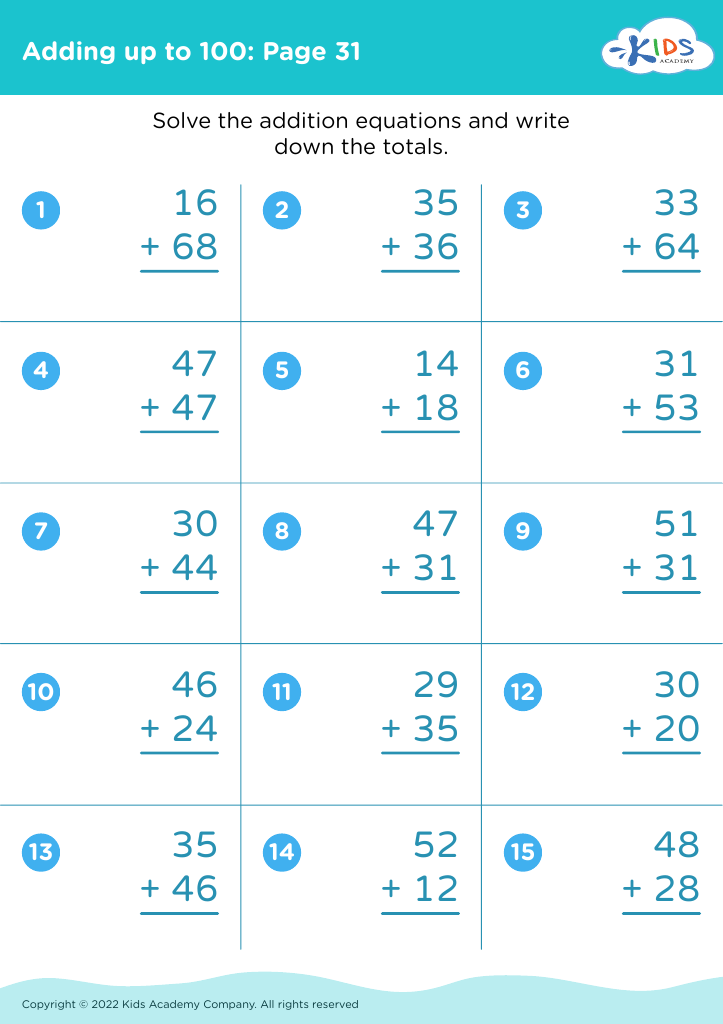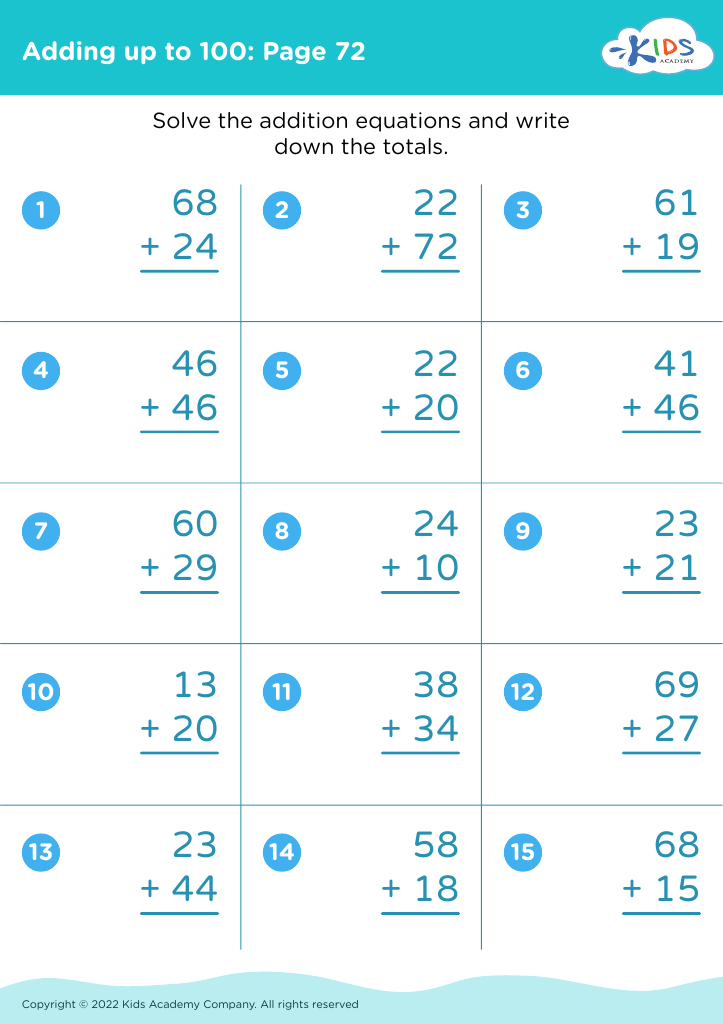Develop number recognition Math Worksheets for Ages 7-8
5 filtered results
-
From - To
Enhance your child's number recognition skills with our engaging Math Worksheets designed specifically for ages 7-8. These worksheets provide a fun and interactive way for young learners to master how to identify, read, and write numbers. Each activity is thoughtfully crafted to incorporate visual aids and practical exercises, making learning enjoyable and impactful. Parents and educators can effectively support students' numerical confidence through these resources, ensuring they grasp foundational math concepts. With a mix of challenging and accessible tasks, these worksheets foster independent learning while sharpening critical thinking skills. Explore our collection and watch your child flourish in their mathematical journey!
Developing number recognition in children aged 7-8 is crucial for several reasons. At this stage, children build foundational skills that will support their future understanding of mathematics. Strong number recognition aids in grasping more complex concepts, such as addition, subtraction, and eventually multiplication and division.
When children can easily recognize and understand numbers, they gain confidence in their math abilities, fostering a positive attitude towards learning. This age group's cognitive development is characterized by critical thinking and problem-solving, which are enhanced by their numeracy skills. Moreover, number recognition aids in real-life applications; children start seeing numbers everywhere, from clocks to money, enabling them to apply their knowledge beyond the classroom.
Parents and teachers should also consider that competence in math can impact children’s academic progress, as a lack of number recognition skills can lead to struggles in later grades. Intervention at this age can reduce long-term learning gaps, promoting better performance in mathematics overall. By supporting number recognition, adults help cultivate a strong mathematical foundation that will serve children well throughout their education and everyday life, ultimately setting them up for future success.






















